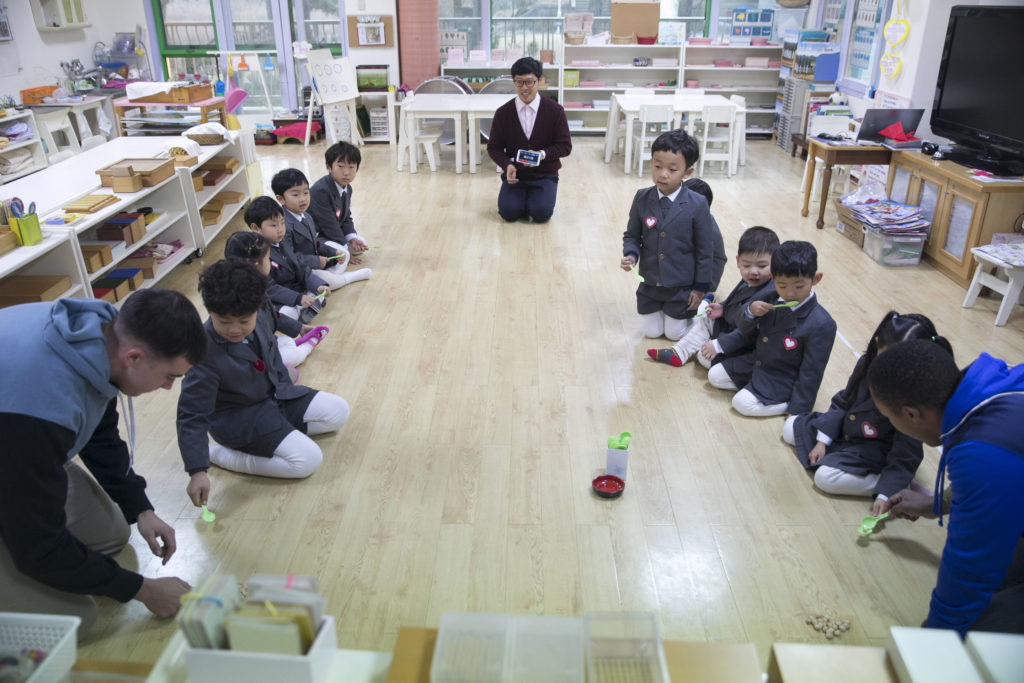The Peninsula
When the Market Option Fails Children
Published May 7, 2019
Category: South Korea

By Steven Lim
Last October, a government audit revealed widespread accounting fraud and budget misappropriation among private kindergartens (PKs). In response, the government announced it would require PKs to use Edufine, a state-run accounting system. The National Assembly also proposed three bills to improve accountability in the industry. These efforts were meant to rehabilitate the reputation of private childcare providers. Nonetheless, PKs remained adamantly opposed to any new measures that increase public supervision of their operations.
Although missteps have temporarily quietened their protests, private providers will continue to wield undue influence because the public alternative is in short supply. To best discipline this market, the government may simply have to expand the availability of public kindergartens.
In February, the Korean Kindergartens Association (KKA) held a 30,000-person rally against the adoption of Edufine. The KKA intensified its protest by scheduling a strike four days before the start of the spring semester. But when this announcement faced unanticipated levels of outrage from parents, the KKA withdrew its plans. Ultimately, only 234 PKs participated in the strike and 164 ended up suspending operations.
Although the PKs finally acquiesced to the government’s demand to adopt Edufine, its misstep has had a deeper impact. Reflecting the public’s dissatisfaction with the KKA’s behavior, a parents’ group filed a complaint with prosecutors. Amidst this public scrutiny, the former KKA head became the subject of an embezzlement probe, further damaging the public reputation of PKs.
The KKA now faces an uncertain future. Its membership shrank significantly in the wake of the announced strike. Further weakening its position, the government revoked the organization’s license during its protests against the adoption of Edufine. As a result, lawmakers will not consult with KKA on educational policy going forward. Other more moderate associations, such as the National Association of Private Kindergartens, may move to fill in the vacuum.
But the government broadly has struggled to implement regulations on PKs in the past. In 2017, the KKA rejected the government’s call for a regular audit and instead demanded more subsidies. The organization’s cavalier attitude stemmed from the government’s heavy reliance on PKs, as they comprised 75% of kindergartens nationwide in 2017.
The public’s recent hostility towards PKs created a rare political space for the government to apply pressure on the industry. To address the skewed power imbalance in the long-term, the government hopes to increase the proportion of public kindergartens in the country to 40% by 2022.
Increasing the number of public kindergartens may be the only way to keep the corrosive influence of PK associations at arm’s length. The government is already putting its plans into action. As part of a local community development plan, it is allocating 2.9 trillion won towards building public kindergartens and daycare centers. This parallels the government’s efforts to expand access to public childcare.
A similar battle over public-private education is playing out with autonomous high schools, which are protesting the government’s periodic license evaluation These issues factor into a larger discussion that Korea is now having about educational (and childcare) accessibility, quality, and costs. This discourse is crucial in determining whether President Moon’s so-called inclusive nation can be realized.
Steven Lim is currently an Intern at the Korea Economic Institute. The views expressed here are the author’s alone.
Picture by Cpl. Wes Lucko and available on Wikimedia Commons
